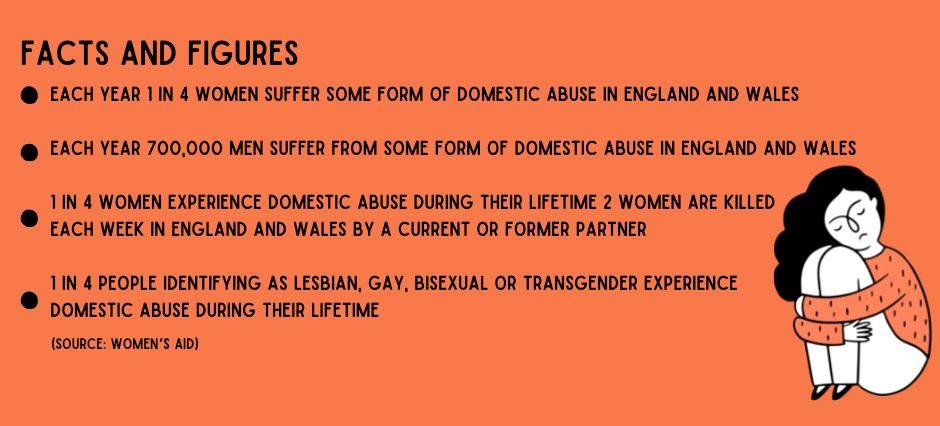Domestic Abuse
What is domestic abuse?
Domestic abuse happens when someone close to you (usually your partner or family member) behaves towards you in a way that causes physical, mental, or emotional damage. It doesn’t have to be physical violence – domestic abuse can include psychological, sexual, or financial abuse. Find out more about domestic violence and how to get help here.
There are many types of domestic abuse including, but not limited to:
- Physical abuse
- Psychological abuse
- Sexual abuse
- Coercive control
- Financial abuse
- Emotional abuse
- Online abuse
If you are afraid of a partner, ex-partner or member of your family, you may be experiencing domestic abuse. Ask yourself if any of the following are familiar to you:
- Does your partner attack you?
- Do they threaten to hurt you?
- Have they made threats to your children, your friends, family or pets, or even themselves?
- Are they jealous and possessive?
- Do they tell you what you can wear and who you can see?
- Do they control the money in your household?
- Do they embarrass or bully you in front of others?
- Are their family involved in abusing you?
- Are you often left anxious or afraid?
Honour-based violence, forced marriages and female genital mutilation are also a form of domestic abuse.
Parents who force their children to marry often justify their behaviour as protecting their children, building stronger families and preserving cultural or religious traditions. However, forced marriage cannot be justified on religious grounds and forcing someone to marry against their will is wrong.
It’s important to remember that you’re not to blame for any kind of abuse and there is help available to make you safe, your children safe and to get your life back on track.
If you are worried about someone knowing what you've been doing online, find out how you can hide your internet history.
You can report domestic abuse here, if it is an emergency please call 999 for the police.

